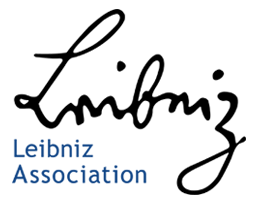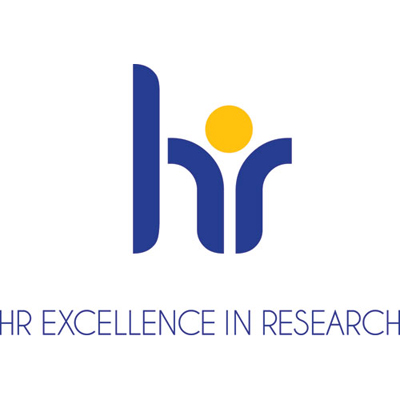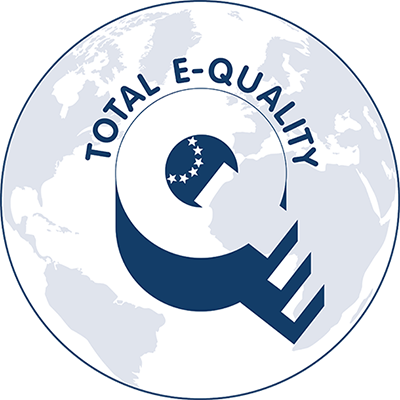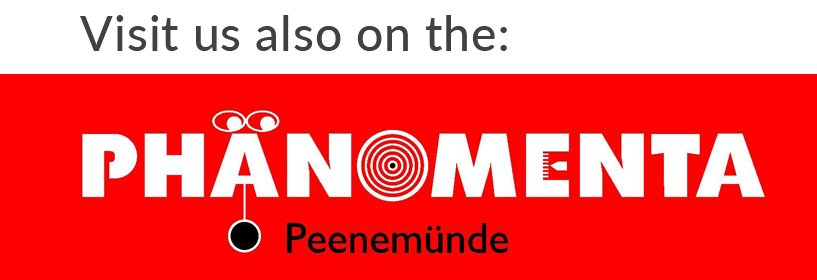The institute
The Leibniz Institute for Plasma Science and Technology e.V. (INP) is a research institution of the Leibniz Association, with the legal form of a registered association (e.V.). The INP is an organisationally and legally independent research institute with the following constituent bodies:
- General Assembly
- Board of Trustees
- Scientific Advisory Council
- Board of Directors
On the grounds of parity, it is financed jointly by its host state - Mecklenburg-Western Pomerania - and the German federal government. The functional responsibility lies with the Ministry of Science, Culture, Federal and European Affairs at host-state level and with the Federal Ministry for Education and Research at federal level.
The management of the institute, the Board of Directors, consists of four people including the Chairman of the Board and Scientific Director Prof. Dr. Klaus-Dieter Weltmann. Since 2003, he heads the INP.
From idea to prototype
We see ourselves as the leading institution in plasma research and technology in Germany, comprehensively combining basic research and applications. As part of the Leibniz Association, the INP is a non-university research facility with focus on application-oriented basic research in the field of low temperature plasma physics.
Good scientific practice
We deliver top performances in the areas of science and technology due to good scientific practice. Our research is carried out in accordance to the rules for the safeguarding of good scientific practice of the Leibniz Association and the German Research Foundation (DFG). This includes, amongst other things, the consistent orientation towards the current standard of international research and technology, the continuous advancement of the scientific methods in use, an in-depth working method; including the constant questioning of one’s own results; the recognition of the scientific work of each individual and the promotion of broad cooperation.
Strategy
Strategically, the institute aims at the realisation of long-term goals and sustainable results. In the pursuit of offering the best possible working conditions for its employees, the institute secures a creative working environment and seeks to open up new perspectives. High scientific standards and future-oriented topics of relevance for all of society, on an international scale, are central to our work. Which, based on a well-founded overall strategy, allows us to help shape trends in politics, economics and research.
Equal opportunities
We offer fair and balanced life and access opportunities for all. The INP actively promotes equal opportunities for women and men, as well as for people with special needs, whilst creating a family friendly working environment. Equal opportunities, non-discrimination, family-friendliness and the reconciling of work and family life are an integral part of the institute’s culture, on all organisational levels. We see it as our responsibility to live along the lines of these standards and to secure them.
Communication and Team Spirit
We regard each other with openness, fairness and tolerance. In dealing with each other, as well as our partners, we treat everyone with esteem, respecting cultural diversity. Interdisciplinary and internal cooperation is the foundation of our success. We encourage our employees to take responsibility and to co-decide within their scope of work, as defined by the matrix structure.
Junior staff development
We support junior staff on all organisational levels of the institute and beyond. In the competition for the best scientific minds, junior staff development is one of our main concerns, in all fields of activity. Our application oriented basic research sparks young researchers’ interest in topics of relevance to society as a whole. We facilitate concrete experience in research, as well as in cooperation with industry partners. To us, junior staff development comprises all qualification stages – from school, over university and apprenticeship, to profession.
Internationalisation
We operate nationally and internationally with success. From Greifswald, we cooperate with globally recognised research institutes. We encourage our scientists to seize international exchange opportunities and support fellowships for international researchers at our institute. The active participation in the shaping of the European research activities is one of our focal points.
Transfer of research results
The results of our research are socially and economically exploitable, by turning them into concrete applications. This includes the publication of scientific results and their transfer into products and services.
The strategy of the INP is supported by the structure of the institute. This has a matrix structure: in terms of content, divided according to scientific aspects, there are three research areas (FB), each with two main research areas (FS); organisationally and in terms of personnel, the INP is divided into 14 scientific departments plus three cooperative departments (plus staff, management units and administration).

The organisational units provide the staff for projects within the research divisions, guaranteeing the preservation and expansion of know-how. Thematically and methodically specialised project groups are at the core of the organisation and responsible for the handling of the in-depth topics of the research divisions. Collaboration is regarded as a matter of course during cross-cutting assignments.
The management support assists the different management levels in matters of research strategy and research policy and guides INP researchers in raising of external funds. In addition, the management support provides assistance in the implementation of large-scale projects and in project management.
The institutes legal and patent consulting as well as communications and public relations are integrated directly within the board departments. Tasks relating to administration and infrastructure are merged into a separate department.
The Board of Directors is responsible for the direction and administration of the INP within the framework of the statutes and in accordance with the resolutions of the Board of Trustees and the General Assembly. The Board of Directors consists of two scientific board members, an administrative board member and an additional person from any arbitrary organisational unit of the INP.
| Prof. Dr. Klaus-Dieter Weltmann | Chairman of the Board and Scientific Director, | |
| Division Manager Renewable Energies & Bioeconomy | ||
| Jens Berger | Administrative Board Member, | |
| Chief Financial Officer | ||
| Prof. Dr. Dirk Uhrlandt | Scientific Board Member, | |
| Division Manager Plasma Chemistry & Process Technology | ||
| Prof. Dr. Thomas von Woedtke | Scientific Board Member, | |
| Division Manager Health & Hygiene |

The members of the association with voting rights (full members) elect the Chairman from among their number; as well as the members of the Board of Trustees and decide upon proposals for amendments of the statutes. The General Assembly convenes at least once a year.
| Dr. Wolfgang Blank | (Chairman) WITENO GmbH - BioTechnikum Greifswald | |
| Dr. Bjoern Schulte | Federal Ministry of Education and Research, Bonn | |
| Woldemar Venohr | Ministry of Education, Culture & Science – Mecklenburg-West Pomerania | |
| Prof. Dr. Dagmar Braun | Braun Beteiligungs GmbH | |
| Dr. A. Melzer | University of Greifswald, Institute of Physics | |
| Dr. Stefan Fassbinder | Mayor of the University and Hanseatic City of Greifswald | |
| Mario Kokowsky | DEN GmbH | |
| Prof. Dr. Jürgen Meichsner | University of Greifswald, Institute of Physics | |
| Dr. Arthur König | Former Mayor of the University and Hanseatic City of Greifswald |
The Board of Trustees decides all issues of fundamental importance to the INP. It determines the guidelines of the association’s work and monitors the statutory use of the budgetary funds.
| Woldemar Venohr | Ministry of Education, Culture & Science – Mecklenburg-West Pomerania | |
| Dr. Björn Schulte | Ministry of Education and Research | |
| Prof. Dr. med. habil. Wolfgang Schareck | University of Rostock | |
| Prof. Dr. med. Wolfgang Motz | Karlsburg Clinic of the Dr. Guth GmbH & Co. KG Hospital Group | |
| Dr. Christiane Gebhardt | BLUE CITY Development Drees & Sommer | |
| Prof. Dr. Albert Sickmann | Leibniz-Institut für Analytische Wissenschaften – ISAS – e.V. |
The Works Council is the body elected by the employees for the representation of the employees’ interests, on the basis of the Works Constitution Act. The Act specifies in which cases the Works Council can or must contribute or participate.
But also in cases where no right of contribution or participation exists, the Works Council always promotes an open-door-policy towards the concerns of all colleagues. Most of the times, counsel or a conversation can already help. To that, every employee may turn to a Works Council member of his or her choice. These conversations are subject to confidentiality for all intents and purposes. This trustworthy handling of information is paramount for all Works Council members!
Head of Works Council:
Daniel Köpp
Tel.: +49(0) 3834 554 3800
koeppinp-greifswaldde
Deputy Head of Works Council:
Liane Kantz
Tel.: +49 3834 554 3871
kantzinp-greifswaldde
The Scientific Advisory Council consists of internationally renowned representatives from science and industry, who are active in the research area of the INP. The Scientific Advisory Council advises the Board of Trustees and the Board of Directors in all significant scientific and organisational matters; in particular with regard to long-term research and development planning. It is independent in its advisory activity and develops suggestions and recommendations for the fields of research in which the INP is active, as well as for the associated work planning. It convenes at least once a year.
| Dr. Uwe Kaltenborn | (Vorsitzender) HIGHVOLT Prüftechnik Dresden GmbH, Deutschland | |
| Dr. Eric Robert | CNRS/Université d’Orléans | |
| Prof. Dr. rer. nat. Martina Meinke | Charité - Universitätsmedizin Berlin | |
| Klinik für Dermatologie, Venerologie u. Allergologie | ||
| Prof. Dr. Luc Stafford | Chaire de recherche du Canada en physique des plasmas hautement réactifs (PPHARE) | |
| Dr. Volker Goeke | Linde GmbH | |
| Prof. Dr. Dr. h.c. Manfred Thumm | Karlsruhe Institute of Technology (KIT), Deutschland | |
| Prof. Dr. Satoshi Hamaguchi | Osaka University, Japan | |
| Center for Atomic and Molecular Technologies (CAMT) Graduate School of Engineering | ||
| Prof. Dr. Annemie Bogaerts | University of Antwerp, Belgien | |
| Dept. Chemistry | ||
| Prof. Dr. rer. nat. habil. Ursula van Rienen | Universität Rostock, Fakultät für Informatik und Elektrotechnik | |
| Prof. Dr. Alexander Fridman | Drexel University, USA | |
| C. & J. Nyheim Plasma Institute | ||
Equal opportunities, non-discrimination, family-friendliness and the reconciliation of family and professional life are core components of our mission statement and the institute’s culture on all organisational levels. The INP actively promotes equal opportunities of women and men, as well as for people with special needs, and supports its employees with tailored personnel development measures. The INP offers its employees a family friendly working environment, allowing a balance between family and professional life e.g. by offering individual working hours and individual workplace arrangements. As a family friendly organisation, we offer our employees extensive flexibility regarding their working hours, home office solutions and support in the planning of childcare or care of dependent family members.
Flexible working hours and workplace arrangements
We facilitate the reconciliation of career and family for our employees through flexible working hours in form of flexitime, whereby our employees can individually organise their workday around the core time. For all employees to be able to participate, we schedule institute events during the core time. We also offer the possibility of home office, having established the technical prerequisites in this regard. This allows our employees an individually structured workday and is often used by our scientists for the conducting of research and the writing up of publications.
Support in obtaining childcare or care for dependent family members
We offer our employees support in obtaining childcare or care for dependant family members. Together, we contact the local institutions to quickly find a solution. We also support employees with small children in need of short-term childcare, for them to be able to participate in scientific conferences to further their career.
Parent-child room
Additionally, we have set up a separate parent-child room in our institute with child-friendly playing and sleeping facilities, offering our employees an option to bridge gaps in child-care. The room is open to all employees and a suitable retreat for nursing.
Support for participation in trainings
For the participation in trainings and seminars, the gender equality officer has funds for the targeted support of female staff. This includes the costs of the successful application for a mentoring programme.
Total E-Quality rating 2014 and 2017
The INP was awarded with the Total E-Quality certificate. After 2014, the institute received the prestigious award for the second time in 2017, recognising its efforts in creating equal opportunities between the sexes in the field of science. "The active and well established gender equality work" as well as "a significant development in the field of equal opportunities" justifies the renewal of the award as the jury saw it. TOTAL E-QUALITY Deutschland e.V. aims at establishing equal opportunities in economy, science and politics and at implementing them sustainably. This aim is achieved once talent, potential and competences of all genders are equally recognised, considered and supported - a high standard, especially for the personnel policy. The certificate remains valid for 3 years. Afterwards, the INP can apply again. The award was developed with the assistance of the Federal Ministry for Education and Research (BMBF) and the European Union for exemplary action and conduct in respect of a personnel management facilitating equal opportunities. TOTAL E-QUALITY Deutschland e.V. was founded in 1996 in Frankfurt am Main and was intended for business enterprises at first. To date, approximately 250 organizations have been certified. Since 2001, research institutions and colleges can also apply for the award.
Gender Equality Officer:
Dr. Christine Zädow
Phone: +49 3834 - 554 3914
christine.zaedowinp-greifswaldde
Deputy Gender Equality Officer:
Dr. Gesa Bierwerth
Phone: +49(0) 3834 554 3969
gesa.bierwerthinp-greifswaldde
| Liane Kantz | Security Officer | kantzinp-greifswaldde | 03834 / 554 3871 | |
| Roland Erler | Fire Prevention Officer | erlerinp-greifswaldde | 03834 / 554 411 | |
| Dr. Antje Quade | Hazardous Substances Officer | quadeinp-greifswaldde | 03834 / 554 3877 | |
| Prof. Jürgen Röpcke | Laser Safety Officer | roepckeinp-greifswaldde | 03834 / 554 444 | |
| Gabriele Henkel | Radiation Protection Officer | henkelinp-greifswaldde | 03834 / 554 3908 | |
| Nadja Dahlhaus | Data Security Officer | dahlhaus@inp-greifswald.de | 03834 / 554 313 | |
| Prof. Christian Wilke | Ombudsman | wilkeinp-greifswaldde | 03834 / 554 3855 | |
| Dr. Kai Masur | Biological Safety Officer | kai.masurinp-greifswaldde | 03834 / 554 3322 | |
| Dr. Anke Schmidt | Genetic Safety Officer | anke.schmidtinp-greifswaldde | 03834 / 554 3958 | |
| Dr. Florian Siegeneger | IT Secruity Officer | siegenegerinp-greifswaldde | 03834 / 554 462 | |
| Dr. Christine Zädow | Gender Equality Officer | christine.zaedowinp-greifswaldde | 03834 / 554 3914 | |
| Uta Haeder-Schult | Deputy Gender Equality Officer | haederinp-greifswaldde | 03834 / 554 3851 |
Building
Since 1999 INP is located in Felix-Hausdorff-Str. 2 in Greifswald. It is in the midst of the scientific and medical campus of the University of Greifswald. The main building has a floor space of about 3.700 square metres. It is equipped with 133 office work stations and 41 laboratories. The extension building closing the gap between INP and Biotechnikum Greifswald was opened in 2010. There, mainly the laboratories and offices of the centre for innovation competence (ZIK) plasmatis (www.plasmatis.de) are housed. 30 office work stations and eight laboratories are located on 540 square metres.
Staff
INP has about 202 employees at present. The scientific disciplines include physics, chemistry, pharmacy and biology.
Budget
INP had a total budget of about 28.4 million euro in 2022. 17.6 million euro of that are competitive third-party funds raised from federal and state ministries, the German Research Foundation (DFG), the European Union and industry.
Plasma Research with Tradition
For more than 100 years physicists have been experimenting with ionized gases, which they call plasma since the late 1920s. Rudolf Seeliger was one of the pioneers when he took over a position at the Physics Institute of the University of Greifswald and founded an internationally recognized school in this field. Paul Schulz, a renowned physicist as well, founded the Research Centre for Gas Discharge Physics, which was attached to the Academy of Sciences. His research allowed, among others, the construction of xenon high pressure lamps, which are still used today for specific purposes. In 1950 the research centre received the status of a regular Institute for Gas Discharge Physics, which allocated to the Central Institute for Electron Physics (ZIE) of the Academy of Sciences of GDR in 1969.

After the German reunification ZIE, like all other institutes of the Academy of Sciences in East Germany, was dissolved according to the German Unification Treaty on December 31, 1991. In accordance with the evaluation of the research activities the Scientific Council of the Federal Republic of Germany recommended the foundation of a new institute, which was carried out on January 1, 1992. From the beginning, the new institution, the Institute for Low Temperature Plasma Physics (INP Greifswald) has been a member of the Leibniz Association. In order to honor Gottfried Wilhelm Leibniz in its name and appreciate his aspiration – "theoria cum praxi" – as part of the strategy of the institute, INP was renamed Leibniz Institute for Plasma Science and Technology on the occasion of its 15th anniversary.
On June 1, the INP celebrated its 25th anniversary and renewed its claim to the close interweaving of basic research and applied science.
The INP offers a broad spectrum of research services in the area of low temperature plasmas. Future-oriented topics of international macrosocial relevance and with a high scientific standard are the center of our work.
Employees with excellent qualifications and our technological equipment, which in some cases is unique worldwide, enable research work on the highest international level. Plasma technology is a cross-sectional technology and is supremely interdisciplinary. This fact is also reflected in our competencies
The range from classic physical competencies, such as modeling and the diagnostics of plasmas, to strong application-related competencies in plasma surface treatment or the development of plasma devices, and extend to competencies in the life sciences and environmental area. Our research is implemented in specific applications. This includes publication of scientific results and the transition of these results into products and services. Via our application laboratories we offer industrial enterprises direct and uncomplicated access to the processing of very specific application scenarios.
- Application Laboratories
- Plasma Bioengineering
- Plasma Diagnostics
- Plasma Life Science
- Plasma Modelling
- Plasma Surface Technology
- Plasma Process Technology
- Plasma Sources
- Plasma Radiation Techniques
- ZIK plasmatis
- Management Support - Research Management
The INP is active in national and international networks as well as organizations relevant to plasma technology. It is member of several organizations including
- BdP - Bundesverband deutscher Pressesprecher e.V.
https://bdkom.de/ - The German Association for Small and Medium-sized Businesses https://www.bvmw.de/
- Carbon Concrete Composite e.V.
https://www.bauen-neu-denken.de/ - DECHEMA - Gesellschaft für Chemische Technik und Biotechnologie e.V.
https://dechema.de/ - Deutschen Gesellschaft für Plasmatechnologie
http://www.plasmatechnologie.org/ - Deutsche Lichttechnische Gesellschaft e.V.
https://www.litg.de/ - German Physical Society
https://www.dpg-physik.de/ - Deutscher Bibliotheksverband e.V.
https://www.bibliotheksverband.de/ - enviMV - Network for Environmental Technologies from Mecklenburg-Vorpommern
http://www.envimv.de/de/home.html - Europäische Forschungsgesellschaft Dünne Schichten e.V.
https://www.efds.org/ - Forschungsvereinigung Schweißen und verwandte Verfahren e. V. des DVS
https://www.dvs-ev.de/fv/neu/index.cfm - Forum MedTech Pharma e.V.
https://www.medtech-pharma.de/deutsch/medizintechnik.aspx - German Water Partnership e.V.
https://germanwaterpartnership.de/de/ - Gesellschaft zur Förderung angewandter Informatik
https://www.gfai.de/ - Greifswald University Club e.V.
https://www.uni-greifswald.de/universitaet/organisation/kooperation/partner/vereine-mitgliedschaften/greifswald-university-club/ - Hydrogen Europe Research association (former N.ERGHY)
https://hydrogeneurope.eu/ - HYPOS Hydrogen Power Storage & Solutions East Germany e.V.
https://www.hypos-eastgermany.de/ - idw - Informationsdienst Wissenschaft
https://idw-online.de/de/ - Initiative Chronische Wunden e.V.
https://www.icwunden.de/ - Competence Network Industrial Plasma Surface Technology e.V.
https://www.inplas.de/en/home - IUTA - Institut für Energie- und Umwelttechnik e. V.
https://www.iuta.de/ - Nationales Zentrum für Plasmamedizin e.V.
http://www.plasma-medizin.de/ - RWI - Regionale Wirtschaftsinitiative Ost Mecklenburg-Vorpommern e.V.
https://www.rwi-mv.de/ - WTI - Wasserstofftechnologie-Initiative e.V.
http://www.wti-mv.de/
The Leibniz Institute for Plasma Science and Technology (INP Greifswald) is the largest nonuniversity institute in the field of low temperature plasmas, their basics and technical applications in Europe. The institute carries out research and development from idea to prototype. The topics focus on the needs of the market. At present plasmas for materials, energy, environment and health are the focus of interest.
















